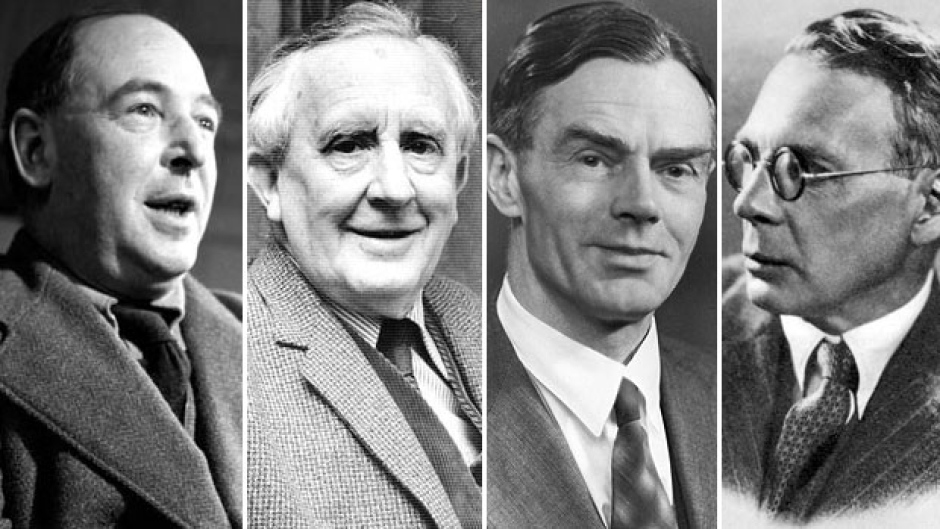
C.S. Lewis wrote to his brother Warren: We dined at the Eastgate. I have never seen in my life Dyson so exuberant–”a roaring cataract of nonsense.” The bill of fare afterwards consisted of a section of the new Hobbit book by Tolkein, a nativity play from Williams (unusually intelligible for him, and approved by all) and a chapter out the book on the Problem of Pain from me. It so happened that the subject matter of the three readings formed almost a logical sequence, and produced a real first rate evening’s talk of the usual wide-ranging kind–” from grave to gay, from lively to severe.”
The Inklings: A Model for Creative Community
Over tea—or ale—and pipes, a group of Oxford thinkers and writers read aloud from their works, traded anecdotes and jibes, and engaged in what C.S. Lewis called “the cut and parry of prolonged, fierce, masculine argument.”
C.S. Lewis, a fellow and tutor in English at Oxford’s Magdalen College from 1925 to 1954, was the group’s vociferous nucleus. Around him were usually arrayed, along with J.R.R. Tolkien, Lewis’s brother Warren (Warnie), the medical doctor R. E. (“Humphrey”) Havard—known affectionately by the group as “the Useless Quack”— and the eccentric author, lecturer, and Oxford University Press editor Charles Williams, as well as Lewis’s friend and colleague Hugo Dyson. Others came and went from this unique fellowship of friends over their many years of meeting together.
Here are some lessons from their meetings that might help us as faculty to both walk with Christ and also find others who might, as Proverbs 27:17 teaches, be the iron we need to help sharpen the iron within us.
1. They met more than once a week.
On Thursday evenings, the Inklings met in Lewis’s rooms at Magdalen College; on Tuesday mornings, they met before lunch at a local pub called The Eagle and Child.
I wonder if many of the relationships necessary for community building falter because we only meet once a week.
2. They met around a common interest.
They all loved literature. C.S. Lewis and J.R.R. Tolkien, in particular, shared a passion for myth, fantasy, and magical worlds. In addition, their shared faith in Christ bound them even closer together. Both Tolkien and Dyson were critical to Lewis’s conversion.
I wonder whether we pay enough attention to “common interests” when we form groups.
3. They encouraged each other’s creative efforts.
The meeting of the Inklings often began with Jack (C.S. Lewis) venturing: Well, has nobody got anything to read us?” Tolkien wrote that, without the Inklings, he would never have written Lord of the Rings. C.S. Lewis almost gave up on the Chronicles of Narnia when Tolkien expressed his dislike of allegory. Fortunately, the rest of the Inklings encouraged him to continue his series.
I wonder how many of our groups are authentically encouraging and honestly challenging.
